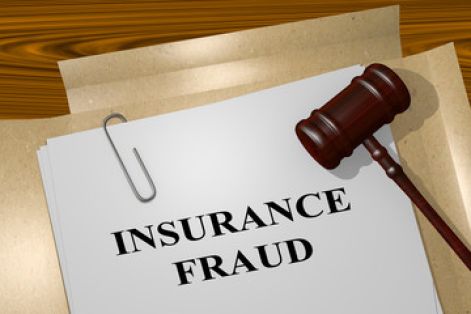How to Protect Yourself Against Insurance Fraud

When you hear the phrase “insurance fraud,” you probably think of people trying to cheat insurance providers in order to get more money—for example, someone burning down his house when the house is worth much less than its insurance policy. However, there is a second kind of insurance fraud that can affect you or the people you know. “Insurance bad faith” is a form of fraud wherein an insurance company attempts to cheat the claimant out of the amount that is rightfully theirs, according to the contract. There are many ways for insurance companies to commit this crime. Learning about them will help you protect yourself against insurance fraud.
Common Forms of Insurance Bad Faith
The goal, for an insurance company acting in bad faith, is to avoid paying money that it should pay. The simplest way to do this is to deny claims that should not be denied. For example, suppose you had health insurance in San Antonio, TX that stated that it would cover the cost of an ambulance. When you have an accident and need an ambulance, you call one without hesitation because you know the cost will be covered. However, your insurance provider rejects your claim, going against your contract. This is insurance bad faith.
Another technique that an insurance company might use is to avoid addressing your claim. For example, you submit a claim, and after several months, you still have not heard about whether your claim will be accepted or denied. While the laws about the exact timeline vary from state to state, most states have a specific requirement about how long an insurance company can take to reply to a claim. After all, you might be in financial need of the compensation owed to you. You can protect yourself against insurance fraud by learning what the time period in your state is.
Two other common ways that an insurance company might try to defraud you are by offering you a settlement lower than what it should be, and by misrepresenting the actual terms of your contract to you. Both of these forms of insurance bad faith can be difficult to identify if you are not trained in law. However, if you feel that an insurance claim you have made has led to a smaller settlement than what you expected, you should protect yourself by consulting an insurance fraud attorney.
What You Should Do To Protect Yourself
If you suspect that you have been a victim of insurance bad faith, you should consult an attorney. Because the specific laws of insurance bad faith vary from state to state, and because the specific details of each contract are unique, only a trained professional can determine whether you have a case against a fraudulent insurance provider.
However, if you have in fact been defrauded, then your case can yield justice for you and for others. This is because it is quite common for an insurance company that is acting in bad faith to be doing so systematically, and investigations into a single claim can often reveal hundreds or even thousands of similarly mishandled claims.
If your case is successful in court, you can expect to be paid the money that the insurance company rightfully owes you, but in many cases, you will receive even more. Depending on your case, the court may rule that the company has to pay you interest on the money that they failed to pay you. Additionally, insurance companies acting in bad faith are often required to cover the plaintiff’s legal fees.
On top of those payments, insurance companies sometimes have to pay for emotional damages. After all, an insurance policy is about more than just the money; it is about the peace of mind that you get from knowing that your house, car, or medical bills are covered. When a company withholds the payment, you need to recover from an accident, an injury, or an illness, they inflict emotional damages upon you, and they can be required to pay for them.
Learn Your Rights
The two best ways to protect yourself against insurance fraud from companies acting in bad faith are to educate yourself and to consult a lawyer. Since insurance laws vary from state to state, you can educate yourself on your state’s specific laws. Secondly, always consult an attorney if you suspect insurance bad faith.
